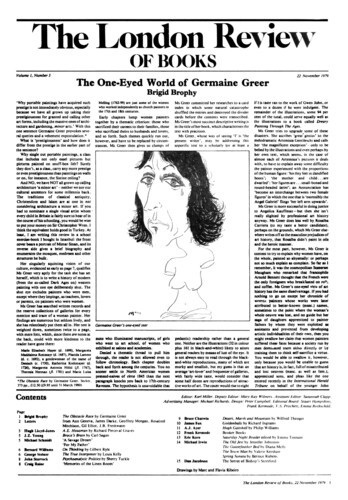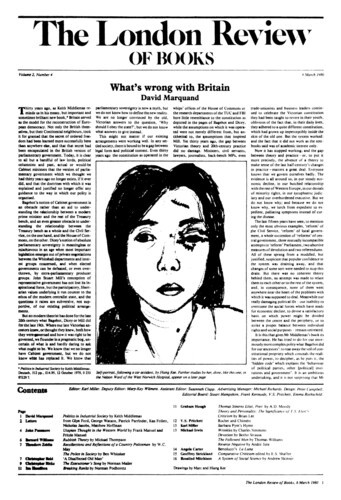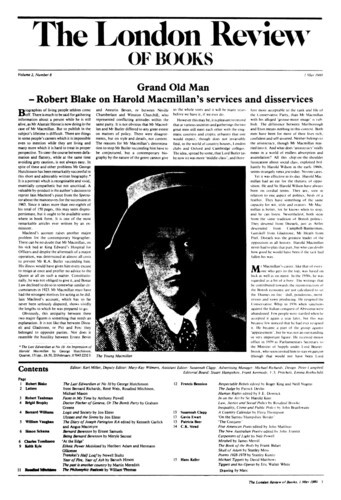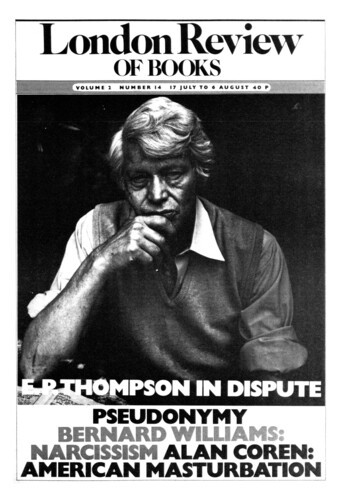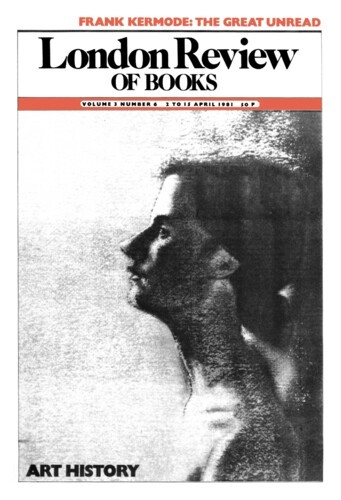Ryle Remembered
Bernard Williams, 22 November 1979
Gilbert Ryle, who died in 1976, was for many years a professor of philosophy in Oxford. He was a man of genially military appearance, with a knobbly, cubic head; rather soldierly in speech and manner, he punctuated his sentences with an abrupt half-cough, highly characteristic of him and much imitated. He was an exceptionally nice man, friendly, generous, uncondescending, unpretentious, and, for a well-known professional philosopher, startlingly free from vanity. He affected an amiable Philistinism, which to some degree was also genuine: ‘no ear for tunes,’ he was disposed to say, if music was mentioned. He was often amusing. He once said of a philosophically-disposed senior Tory politician that he stood like a light out to sea, firmly beckoning ships on to the rocks.
